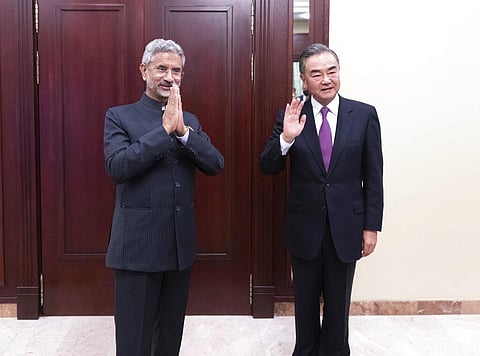

NEW DELHI: External Affairs Minister S Jaishankar is likely to meet his Chinese counterpart Wang Yi in Dushanbe in Tajikistan on the sidelines of the Shanghai Cooperation Organisation foreign ministers’ meeting. The two leaders last met on the sidelines of a similar meeting last September in Moscow, where they agreed on a five-point mechanism to ensure desecalation of tension and disengagement from friction points along the Line of Actual Control (LAC) in Ladakh.
According to sources, Jaishankar and Wang will discuss the security situation in Afghanistan and also the pending disengagement in Eastern Ladakh. Sources said the dates for the next round of senior military commanders meeting will be decided after the two foreign ministers meet.
Jaishankar arrived in Dushanbe on Tuesday to attend the SCO meeting, following which, he will proceed to Uzbekistan for a regional connectivity conference on July 15 and 16. The minister will also share stage with Pakistan Foreign Minister Shah Mehmood Qureshi. However, officials have ruled out any one-on-one meeting between the two. The agenda of the SCO meet will predominantly be the Taliban offensive in Afghanistan and its effect on neighboring south and central Asia.
“The meeting will discuss the achievements of the organisation as it celebrates the 20th anniversary of its formation in this year. It will also assess the preparation for the upcoming SCO Council of Heads of States and exchange views on current international and regional issues,” the ministry of external affairs stated.
The SCO was founded in 2001 by Russia, China, Kyrgyz Republic, Kazakhstan, Tajikistan, and Uzbekistan. It is an eight-member bloc, of which India and Pakistan became permanent members in 2017.